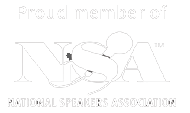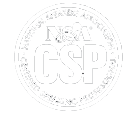E-mail is the E-nemy
In my time management workshop, I have a big section on e-mail. When I recommend not checking it constantly, people get e-motional. I’ve never seen so much resistance to anything. (I’m not talking about people whose job is to deal with e-mail. Certain customer service jobs pretty much revolve around responding to e-mail. I get that.) Sometimes this resistance is from very highly paid people. I’m pretty sure the company is paying them to do crazy things like develop strategy, lead and inspire employees, pursue new business, be innovative. Not sit at their desks all day and respond to e-mail. (If you are getting e-motional right now, this article is for you.)
I’ll be honest about myself (you can continue to lie to yourself if you choose). I’d say that less than half of the e-mail I get is really crucial to my business success. Many days, there are things I need to be doing that are far more important to the long term success of my business than answering e-mail. But e-mail is seductive – it’s easy to get sucked into and I feel like I’m really working; I’m staying on top of things; I’m a master of the universe! In reality, not so much.
Back in the old days, your secretary would be going through all these messages and you’d only be dealing with the 45% that’s really important. Somehow we opened the floodgates with e-mail and the CEO is responding to people who would have never gotten to her before.
I did a training program where everyone was on their laptops the entire time. They said they did that in all meetings, including internal ones. In their company, if you show up at a meeting with just a pen and notepad – well, let’s just say it’s frowned upon in that establishment. I was shocked. It’s been well documented that humans cannot multitask. If I am in your meeting and I’m answering my e-mail at the same time, I’m switching between the two. I’m out of your meeting at least half the time, maybe more. I think they need to have shorter, better run meetings without the laptops or not have the meetings at all. But it’s their culture. Leaders, you have to examine this at your company. Chances are pretty good that your people are typing as fast as they can to try to keep up with e-mail. You need to help where needed.
Take control back from your e-mail!
1. Disable the alerts. Work on the really important things you need to get done. Every time you interrupt yourself to check e-mail, it can take 15 minutes (or more) to get your head back in what you were doing. This is true of all interruptions. 15 minutes every work day is over 60 hours a year. You got 60 hours to spare?
2. Check e-mail only at certain times of the day or after you get a project done. You determine when you will check e-mail, e-mail doesn’t get to direct you.
3. Consider a bounce back message (From Tim Ferriss’ book Four Hour Work Week). It can say anything – “In the interest of productivity, I check e-mail three times a day. I’ll get back to you within 24 hours. If you need something sooner, call.”
4. Be honest with yourself – do you use e-mail to procrastinate? I sometimes do. I know I need to get to work on XYZ, but I’ll just check e-mail first. Hours later, nothing’s done on XYZ, but I’ve got some new LinkedIn connections and exchanged e-mail with 5 people who don’t have enough money to hire me.
5. Plan your day. Start your day knowing what you really need to get done. Make that your priority. Check e-mail as a break, only deal with the truly important messages, and go back to what you need to get done.
6. Constantly checking e-mail is a habit. So is constantly checking your phone. It takes discipline to break the habit and focus.
7. Use Rescue Time – an app that tracks what you do when you’re on the computer. See how you REALLY spend your time.
8. Consider better use of administrative people – could they help with e-mail volume? Could you add some manpower to a work group? What other ways can you consider to help people deal with e-mail?
E-mail lets any random person communicate with you whenever they want. Are these people in charge of your time or are you? Would you talk with them on the phone if they called? Would you drop everything for them? E-xamine!








This is eye opening to me and makes so much sense. The most stressful part of my job as the manager/marketer/respiratory therapist is feeling like I’m not being productive, creative, and increasing business. I spend so much of my day reading/responding to email and I don’t get to focus on my ideas and projects to improve and increase business. Thank you for the advise! I’m going to try this starting today. Now, how to I keep my employees from interrupting me constantly without making them feel like I am not available to come to with their needs???
Yay! It is one of my missions to set people free from the chains of e-mail!! And I have an idea for the second part – I worked with one CEO who wanted to have an open door policy, but couldn’t get anything done. so I suggested he have an open door policy, but just at certain times. The trick is you find the times that make the most sense for you and your people. And you have to really be available during those times if needed. and not at other times except for true emergencies. This will be hard… Read more »